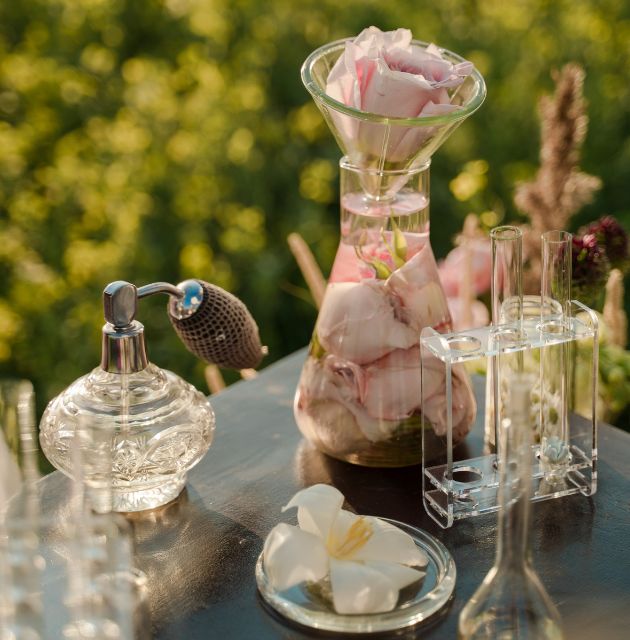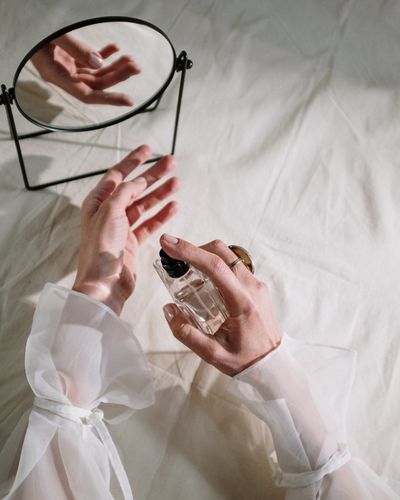India’s rich cultural legacy of perfume making holds the earliest archival records in the Brihat Samhita, an ancient text written by Varāhamihira, a 6th-century astronomer, mathematician and astrologer who lived in Ujjain. Furthermore, textual and visual history stands testament to our obsession with fragrances — from lavish fragrant bath rituals of the royals, and spiritual awakenings with incense sticks, to the cultural significance of attar. Kannauj, a small town in Uttar Pradesh is regarded as the ‘perfume capital of India’ for cultivating the exotic Damask roses and time-distilled attar manufacturing processes for more than 400 years. It provides raw materials for the fragrance industries like perfumes, essential oils, incense sticks, candles, etc. Kannauj is to India what Grasse is to France. The most coveted European fragrance giants like Christian Dior, Chanel and Guerlain are known to source raw materials like vetiver, rose attar, flowers, and woods from different parts of India.
Even with a gold mine of resources at disposal, the dearth of niche home-grown luxury fragrance brands continued for ages until modern perfumers started delving deeper into our fragrant culture. They are creating a perfect melange of the finest ingredients and traditions with the nuanced techniques of global master perfumers. The unanimous vision is to transition to the indigenous luxury perfume segment.
Evolved landscape
Perfumer Rajiv Sheth moved back to India in 2009 with his generational knowledge of essential oils and 16 years of perfumery experience in Grasse and Paris. He wanted to translate his inspirations from all the aspects of modern French perfumery and his multicultural experiences into luxury yet affordable perfumes and fragrances. “We saw a need for world-class scents for daily wear in India. There was a cultural shift amongst young Indians who viewed grooming as a need for social acceptance. In addition, disposable incomes were increasing. We saw a gap in the Indian perfume market. Deodorants were being used as perfumes as there were very few branded Indian perfume players in the market. Our inspiration was to provide seekers of accessible luxury with modern contemporary homegrown scents with international appeal.”
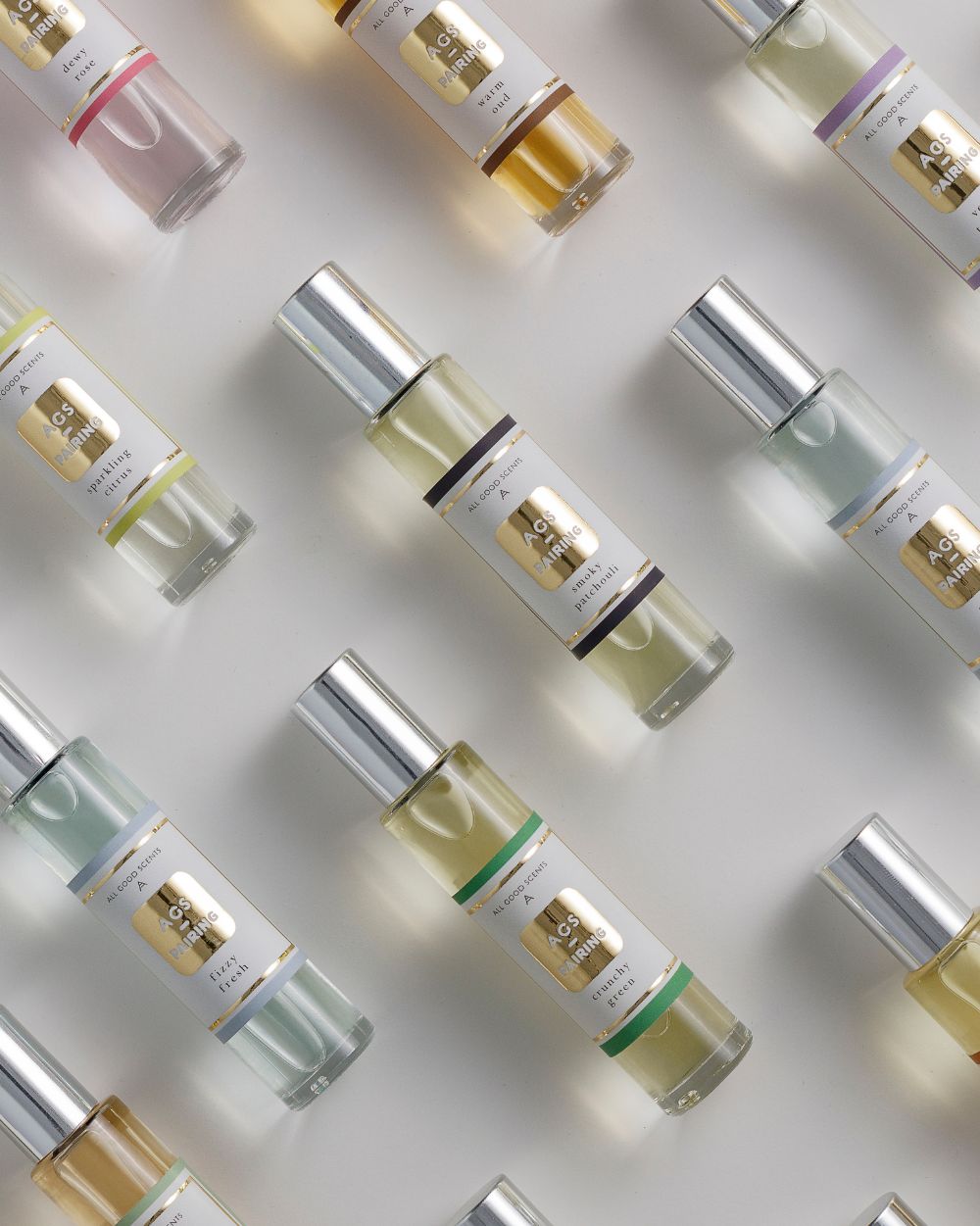
AGS Pairing range of perfumes by All Good Scents
Similarly, Bombay Perfumery was founded in 2016 by Manan Gandhi after he noticed a gap in the Indian market for niche perfumery. Coming from a family rooted in the Indian fragrances industry, the brand was born out of a deep passion for perfumery. “We source our ingredients from around the world. For instance, while Vetiver or Khus is easily available in India, we source it from Haiti as the subtle aroma works best in perfumery. Our range of fragrances is modern and experimental, yet with a nostalgic heart. They are crafted to evoke a thought or a memory.”
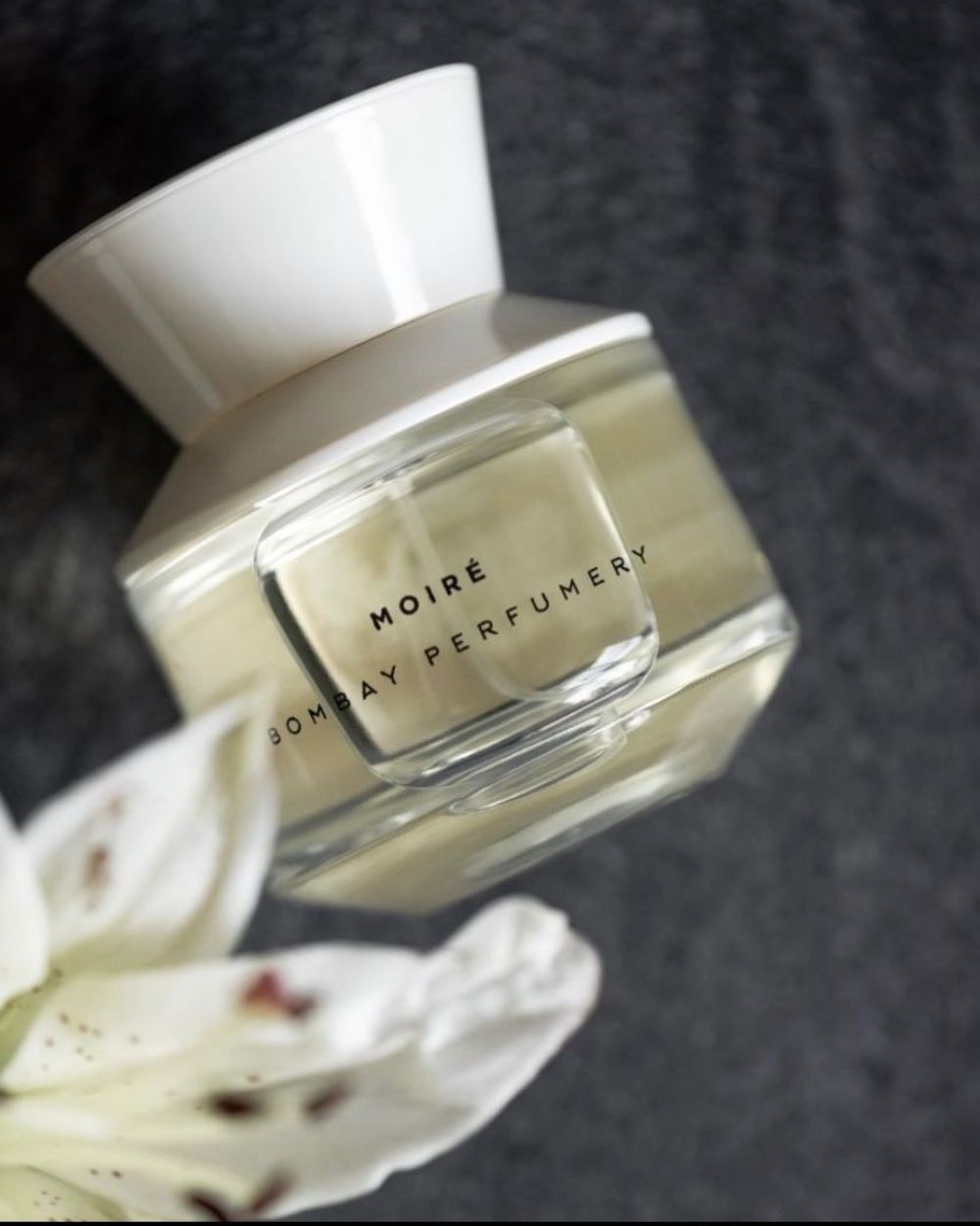
Moiré by Bombay Perfumery
Crafting niche experiences
The art of perfumery requires a proper blending of ingredients keeping in mind the artistic sensitivity, scientific knowledge and most importantly, the climate, feels Dimple Fouzdar, founder of the artisanal brand, Maison De Fouzdar. She shares, “I conducted extensive research based on weather conditions as it’s a challenge to make perfumes last long in a hot and humid climate like ours. Our perfumes are unisex and have 38 to 45 per cent oil concentration that helps them to last longer.” Fouzdar sources rich and luxurious ingredients like Madagascar vanilla, Bulgarian rose, white musk, and red sandalwood from various parts of the world. The house offers nine extrait de parfum variants starting at INR 9,800 and going up to INR 10,999. The brand has recently launched the Santal Safran fragrance, a beautiful blend of red sandalwood, saffron and musk.
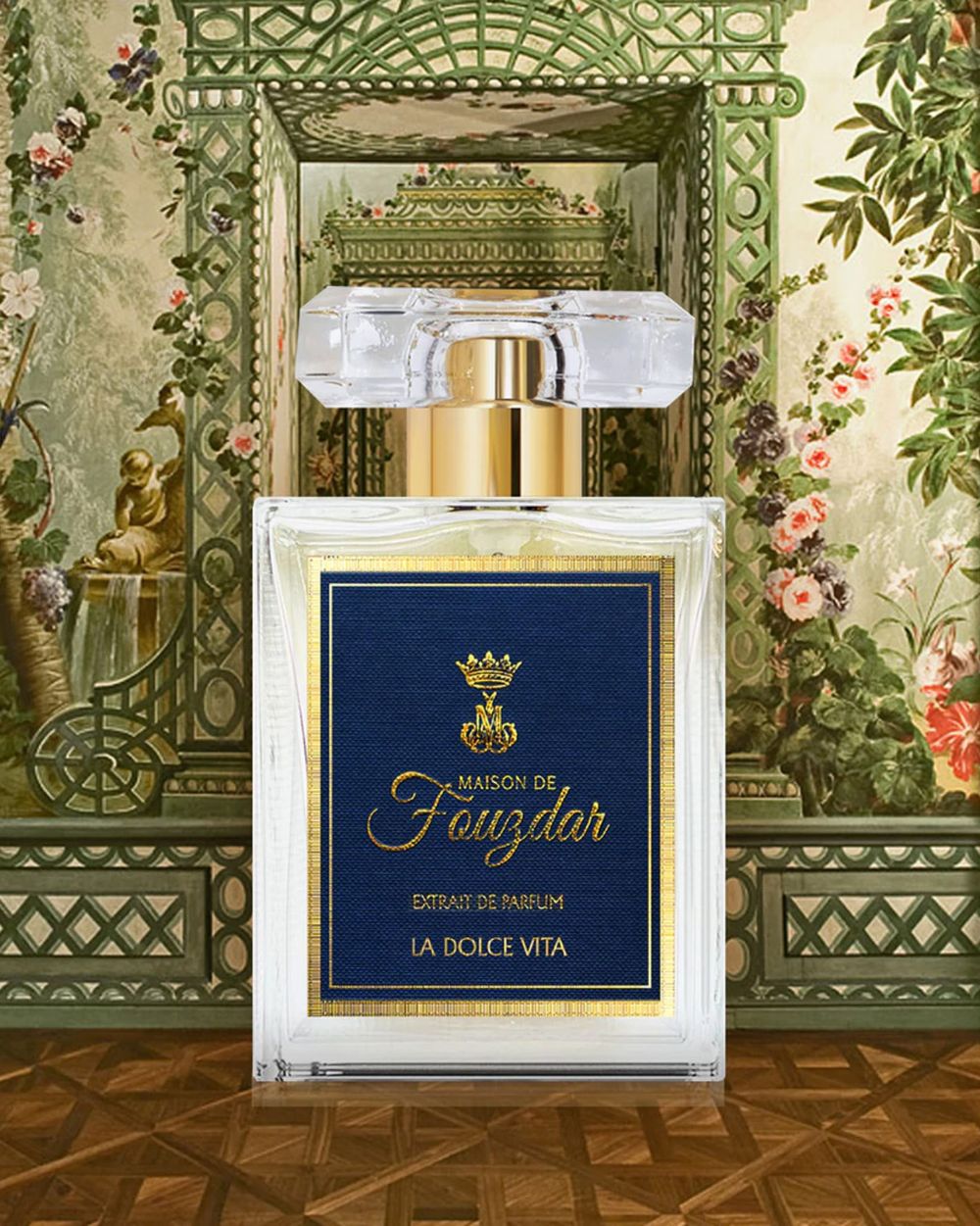 La Dolce Vita by Maison De Fouzdar
La Dolce Vita by Maison De Fouzdar
All Good Scents offers a diverse range of fragrances with different olfactive choices for personal use, gifting or even creating your scents. Sheth adds, “We work with a few hand-picked sourcing partners. Our fragrances are blended in France, with partners I have worked with for over 20 years. We follow strict EU legislation for our fragrances. When we started, we used to source a large part of our packing materials from China. But now we have set up profound sourcing of all packing materials from India.”
The artisanal perfume brand Naso Profumi uses attar as a modern green compound to increase the potency of the smells that sets the tone for their mindful ethics. Founder Astha Suri believes people were unaware of modern Indian amalgamations and the contemporary side to basic ingredients that we use in our prayer rooms, kitchens and homes as lifestyle ingredients. Naso gave such herbs and spices a modern palate exclusive to their eau de parfum blends. “The amalgamations of ingredients we use at Naso, are unlike any other. Our philosophy has been to draw light to the richness in ingredients our country has to offer. We consciously focus on picking ingredients that bring healing properties to our table. Our floral oils are sourced from Italy to amalgamate the cultures and produce the finest of Indo-Italian Oud. We use the traditional process of Indian perfumery in our warehouse in India.”
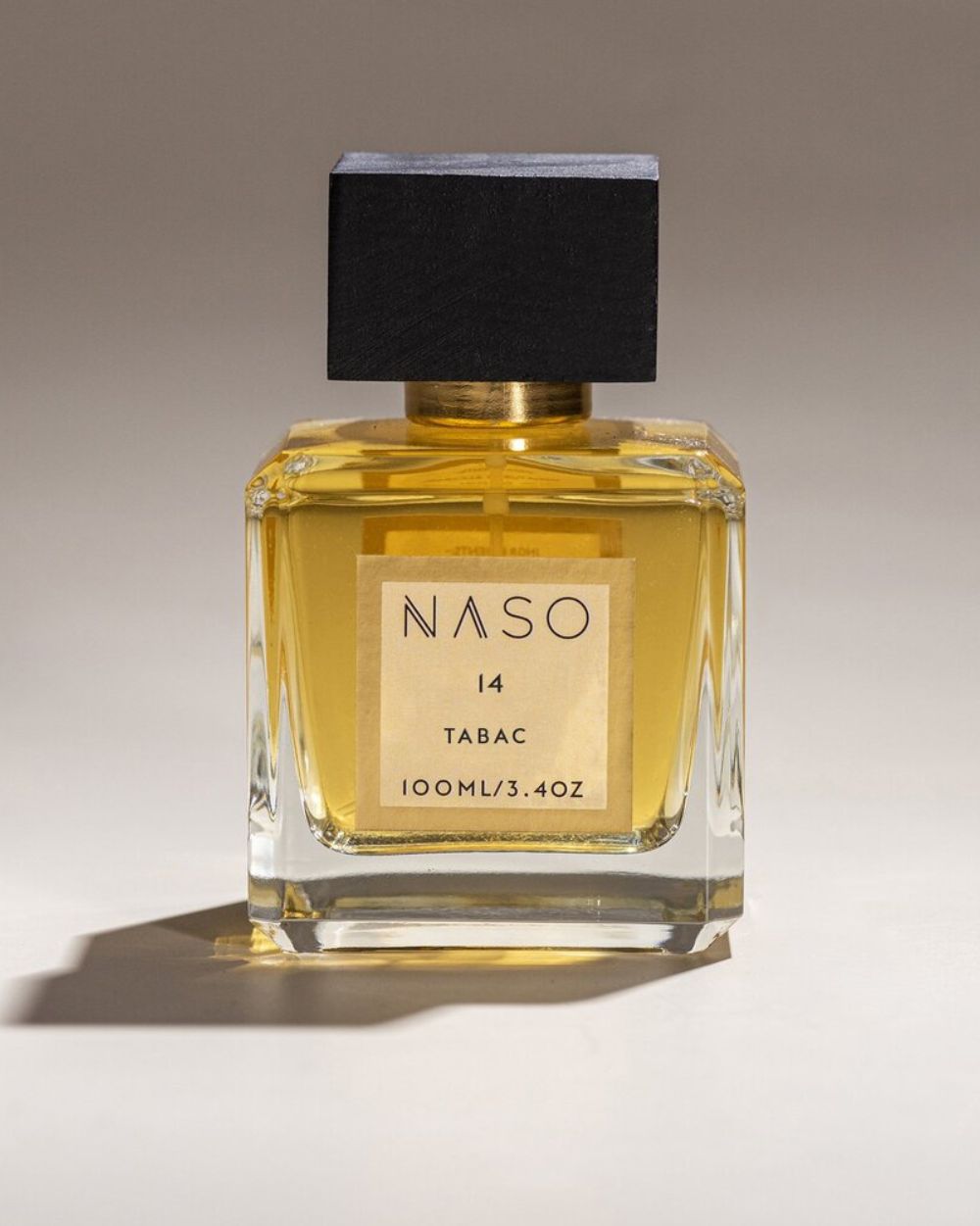
Tabac by Naso Profumi
Pushing the envelope
Innovation has been at the core of all strategies at All Good Scents — from launching the brand online with Scentbox to the recent launch of the AGS Pairing range of 10 perfumes, where a user can pair, mix and match scents directly spraying on the body to create a new fragrance every day. “We create fragrances centred around our cultural preferences but in an appealing way. It’s equivalent to modernising the Indian attars for the newer generations. Our innovations are not only restricted to products but extend to design, marketing, PR and customer service,” Sheth tells us.
Controlling sprays and usage, and rebuying bottles in a short space is something Naso aids by filling the gap in the market and making ten green blends which bring luxury to an affordable table. Suri says, “From practice to producing, we take pride in our 360 degrees approach. We offer our farmers a healthy lifestyle and are beginning to enhance a health hazard-free environment for them to work in.”
While the perfume legacy of India inspires us, we have tried to reinvent the way they are perceived and enjoyed, says Gandhi. “For example, Madurai Talkies is an intensely floral perfume which would have appealed to Indian women across age groups, but we tempered it with a cedarwood base to lend some nuance. Moreover, we have used lesser-known ingredients such as Custard Apple to elevate the palate,” explains Gandhi.



